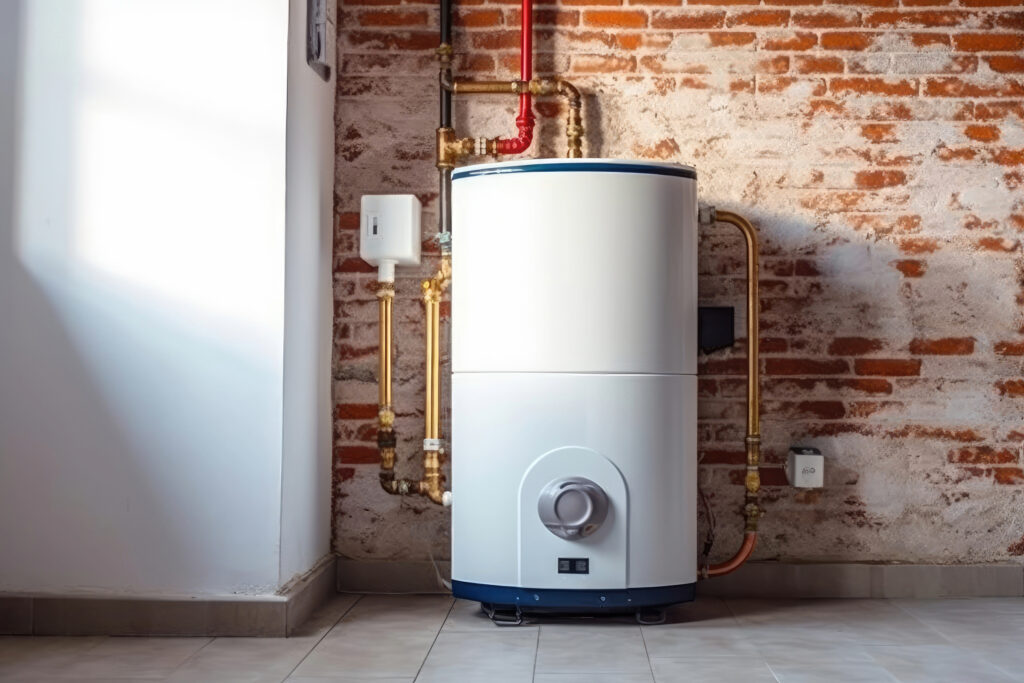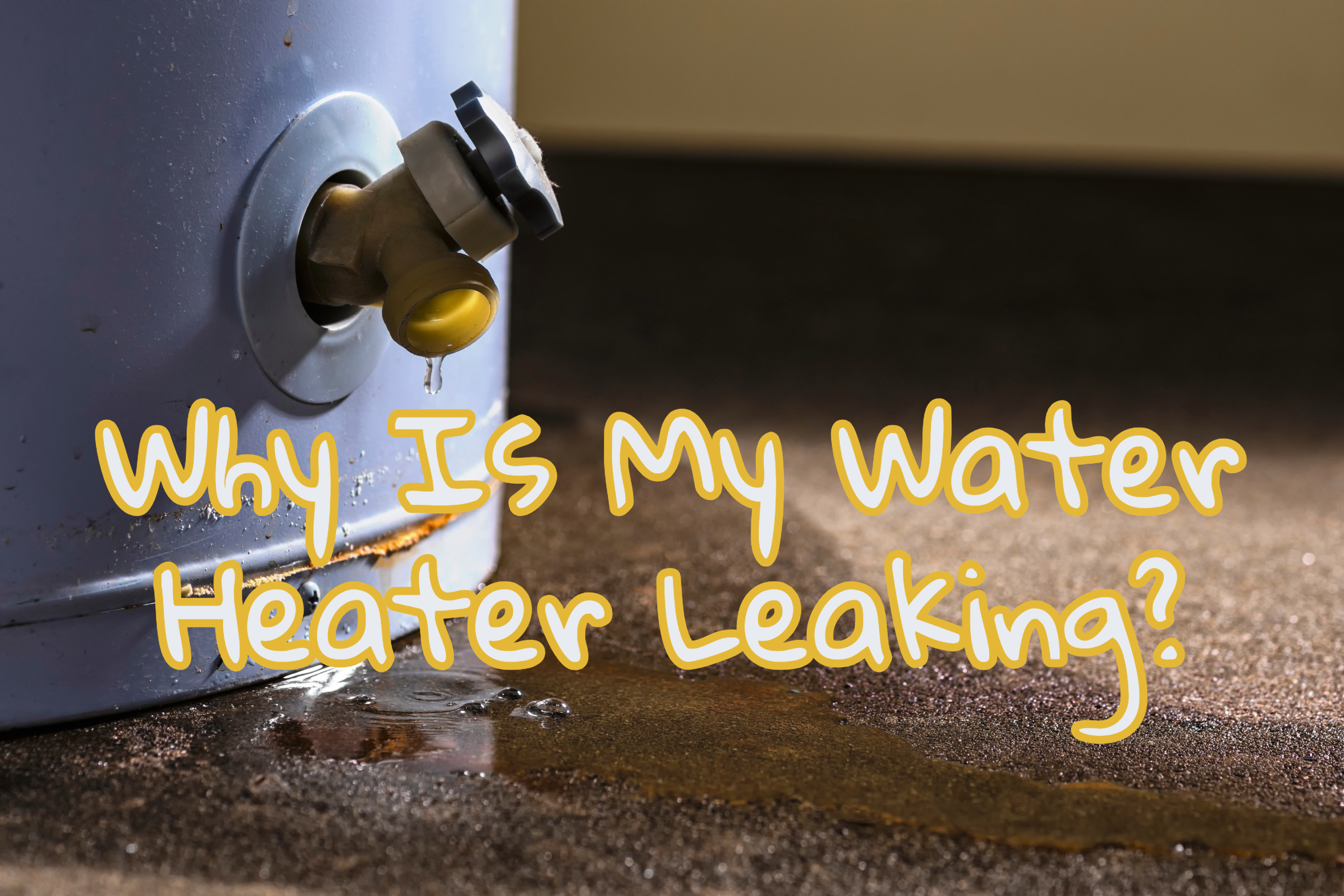A leaking water heater can be a homeowner’s worst nightmare. Not only does it hike up your utility bills, but it can also cause serious water damage to your home. So, join your Blue Ash Plumbing & Drain pros today as we dive into why your water heater might be leaking and what you can do about it.
Before we start: Hey, just a reminder – when troubleshooting, always turn off the unit first before doing anything! Your safety is super important!

There Is a Loose Cold or Hot Water Inlet and Outlet Connection
One of the most common reasons for a water heater leak is a loose connection on the cold or hot water inlet and outlet pipes. Over time, these connections can loosen up due to temperature changes and just good old regular use. When this happens, water can start seeping out. You might notice a small puddle around the base of the heater or a slow drip from the pipes.
To see if this is the cause, take a look at the connections at the top of the water heater. If you spot any water around these areas, the connections might be to blame. Tightening them with a wrench could fix the issue, but be careful not to overtighten them, as that could cause more damage.
There Is a Malfunctioning Pressure Relief Valve
Another potential cause of a leaking water heater is a malfunctioning pressure relief valve. This valve is meant to release excess pressure inside the tank, but if it malfunctions, it can cause water to leak out. A faulty pressure relief valve can be quite serious, as it means the tank might be under too much pressure. When this happens, it could lead to the tank bursting, which is definitely a dangerous situation.
To check if this valve is the problem, gently lift the valve’s lever. If water comes out, the valve is working. However, if it keeps leaking after you release it, it might be time to replace it.
There Is a Faulty or Loose Temperature & Pressure Relief Valve
Just like the pressure relief valve, the temperature and pressure (T&P) relief valve can sometimes be the culprit behind water heater leaks. This handy valve helps manage the water heater’s temperature and pressure. If it’s not working properly or is a bit loose, it can lead to leaks. A leaking T&P valve might mean the water temperature is too high or the pressure inside the tank is too much. Both of these situations can be risky and need quick attention.
If you think the T&P valve might be the issue, take a look for any water around it. If it’s wet, you might need to replace it.
There Is a Leaking Inlet Valve
The inlet valve, which controls the flow of cold water into your water heater, can often cause leaks. If this valve is damaged or isn’t properly sealed, water might escape. A leaking inlet valve usually leads to water pooling around the base of the heater. You might spot a steady drip or a small stream of water coming from the valve area.
To tackle this issue, take a look at the inlet valve for any signs of damage or wear. If you find any, you might need to tighten it or even replace it.
When You Should Call a Professional Plumber:
If you’ve tried all the troubleshooting steps and your water heater is still leaking, it’s probably time to call a professional plumber. Keep in mind, some problems can be a bit too tricky or risky for DIY fixes. A pro can pinpoint the issue and offer a lasting solution, whether it’s replacing parts, fixing internal tank problems, or even suggesting a new water heater.

A leaking water heater can be quite a hassle and cause damage if not fixed quickly. By understanding the common causes and following some troubleshooting steps, you can often sort out many issues yourself. As always, keeping your water heater in good shape will save you from bigger headaches later. Being proactive is key!
Our friendly team of experts is always here to help you keep your home safe and comfortable. You can call Blue Ash Plumbing & Drain by calling (513) 995-4898 or clicking here to schedule an appointment now!




